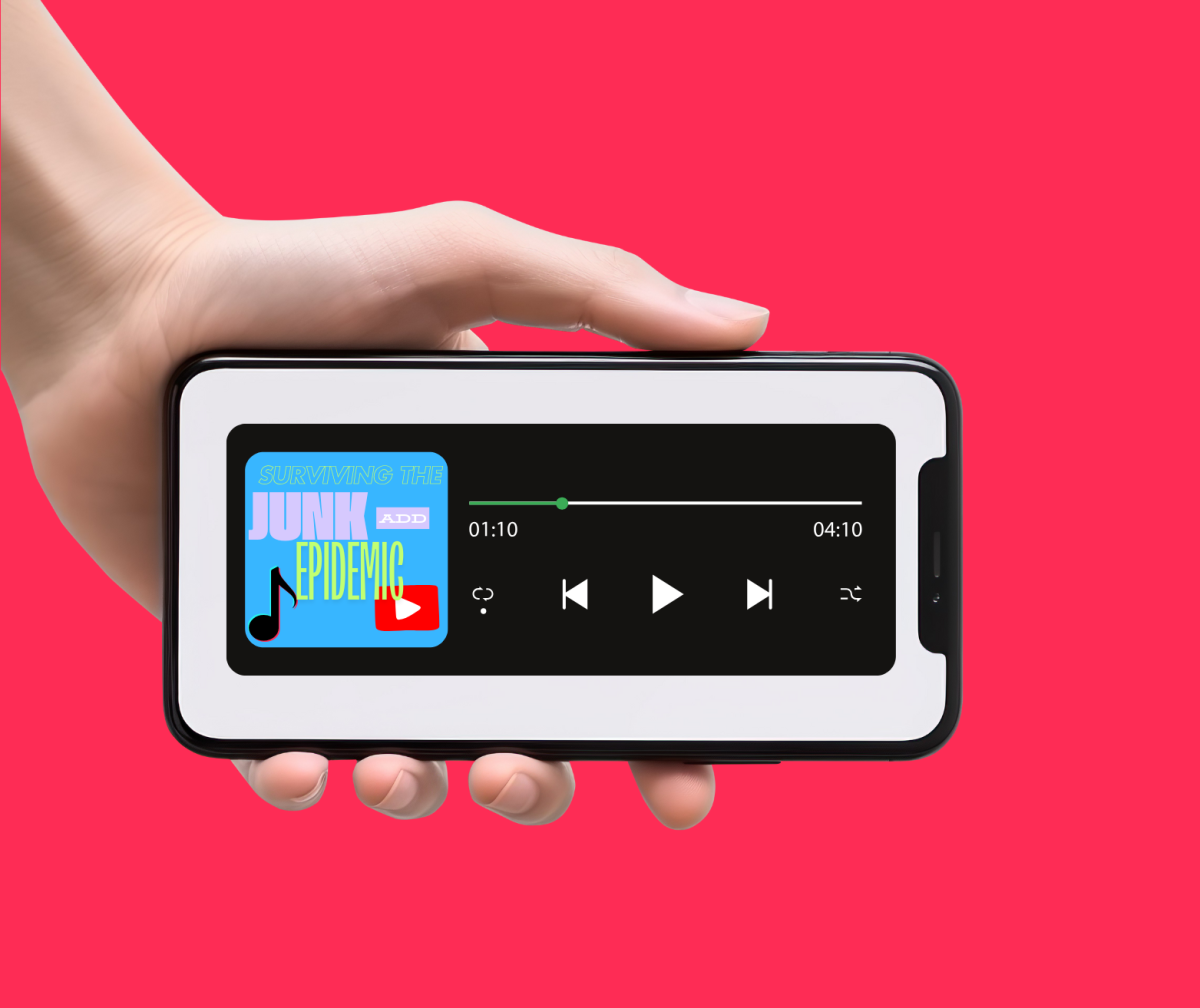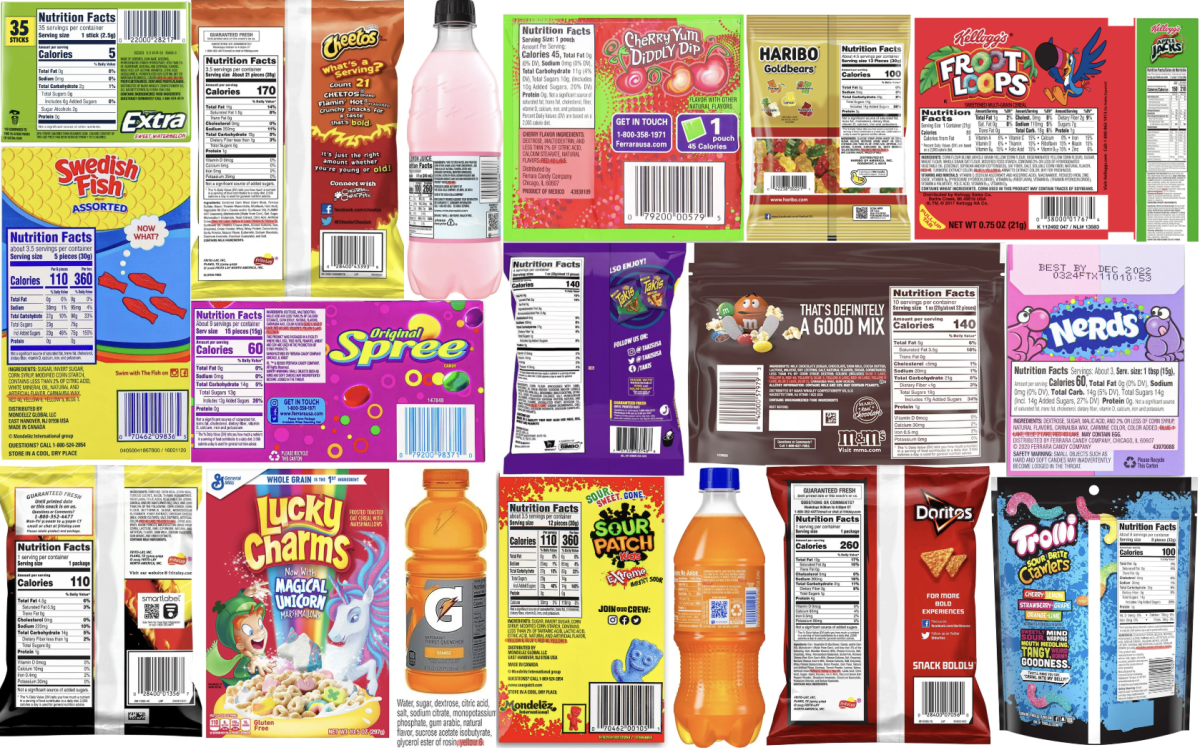Have you noticed the increase of promotional content on your TikTok “For You Page” recently? Perhaps you don’t skip it anymore because your mind is too enthralled by the captivating colors on your screen – the truth is that we are living in a junk-ad epidemic. Browsing through your favorite social media platform feels like a tangle of pointless commercials being shoved down your throat. Research done by Forbes shows that the average American watches between four thousand and ten thousand ads every day, which makes me wonder if advertisements even work, and if I can avoid them. The bigger question lies, how can I maintain my sense of individualism as a social media user when big corporations only view me as an advertisement revenue generator?
“I feel like they don’t really work. They are counterintuitive! When I get bombarded with the same ad hundreds of times I just don’t want to buy the product,” said Samantha Pham, a junior at Cy-Fair High School. Met with such a strong opinion, I decided to ask someone from The Village School to see if perspectives changed between schools. “I hate ads! They are so annoying and unnecessary! When I watch YouTube I am not interested in knowing how Grammarly will help me spell better,” said Ximena Trejo, a junior at The Village School. Considering both points of view, I suppose that most students and teenagers as a whole feel similarly about the inconvenience of advertisements. Even big companies understand that marketing through social media doesn’t work! Marketing Insider Group found that 89% of marketers don’t believe in the proficiency of promotional videos and 96% of them admit they are a waste of money. Ultimately, it can be concluded that advertisements on social media, besides being annoying, are in fact useless and a waste of money.
In any case, is it even possible to avoid promotional content? Most, if not all music streaming platforms offer premium subscriptions – in theory, that should make advertisements obsolete. What’s enticing about these subscriptions is that they allow you to download content, listen to music offline, have unlimited skips, and most notably provide a commercial-free listening experience. When asking around The Village School, I found that virtually everyone does end up paying for Spotify Premium, students and teachers alike, but are all advertisements completely removed with this purchase? Promotions for the newest singles and albums are still visible on the platform and thrown at users, so what am I really paying for? Spotify’s website claims that with their premium subscription “ad-free music” listening is possible. So in actuality, I pay for the removal of commercials in between songs (the commercials in question tend to be from Spotify itself, inviting you to be a part of its premium clientele), but I am still exposed to advertisements on the platform’s homepage which promotes new releases. This is just one example of the never-ending web of hidden promotional content we face every day, proving that realistically, unless you go completely offline, advertisements are unavoidable.
Lastly, there is the topic of how targeted-ads can strip me of my sense of individualism by putting me into boxes based on my consumer patterns. Business.com argues that new technological advancements, such as Artificial Intelligence “will help enhance the customer experience.” As I researched this information I became aware that this method of advertisement, although quite helpful for startups, makes me feel scrutinized, misunderstood and fearful for the future. It is a scary thought to know that everything I do online is being monitored and used against me in order to have me participate in consumerist habits. On the brighter side, some social media platforms like TikTok and Instagram, have settings called “personalized ads” which allow users to block personal data from being used for targeted advertisement. Although this alternative does not completely resolve the issue of feeling dissected and scrutinized by companies, it helps me feel safer as I grow more privacy-conscious while browsing the internet.
My takeaway after researching and talking to some peers is that all my concerns regarding advertisements on social media are valid. Although this is not a big topic of discussion today, I hope that in the future we can begin to engage in conversations about the downsides and excessive nature of digital advertising.
References:
Abraham, M., & Lodish, L. M. (1990, May 1). Getting the most out of advertising and promotion. Harvard Business Review. https://hbr.org/1990/05/getting-the-most-out-of-advertising-and-promotion
Dan, A. (2022, June 27). 7 reasons people hate your ads and what to do about it. Forbes. https://www.forbes.com/sites/avidan/2022/06/27/7-reasons-people-hate-your-ads-and-what-do-about-it/?sh=8a0e8194eaaf
Spotify Premium – spotify (US). (n.d.). Spotify. Retrieved March 4, 2024, from https://www.spotify.com/us/premium/
Thompson, J. (2020, August 18). The ads affair: How the industry has changed and is changing. Business.com. https://www.business.com/articles/how-the-ad-industry-is-changing/
(N.d.). Marketinginsidergroup.com. Retrieved March 4, 2024, from https://marketinginsidergroup.com/marketing-strategy/digital-ads-dont-work-and-everyone-knows-it/








